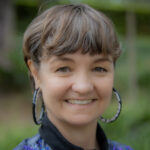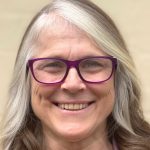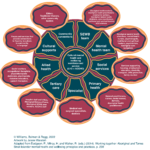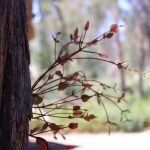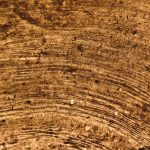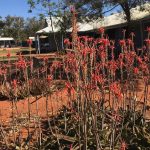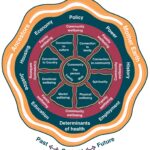
September 2023
Download Alignment of Indigenous knowledges, evaluation methodology and workforce development PDF
By Megan Williams, Danielle Manton, Sally Fitzpatrick and Mark Ragg
The diagram below summarises influences on evaluation and research by, with and about the health and wellbeing of Aboriginal and Torres Strait Islander people. It begins with Indigenous knowledges – ways of knowing about the world, of being in the world, and of doing required actions, which are all connected. These loosely align with western science: ontology being about how a researcher understands the world, epistemology being how they understand knowledge to be created, and axiology being about putting things into practice. This diagram includes health professional development because health programs and their evaluations cannot be separated from the health professionals’ actions. Health professional development includes values, and relates to knowledge, skills, and their application, developed over a lifetime.
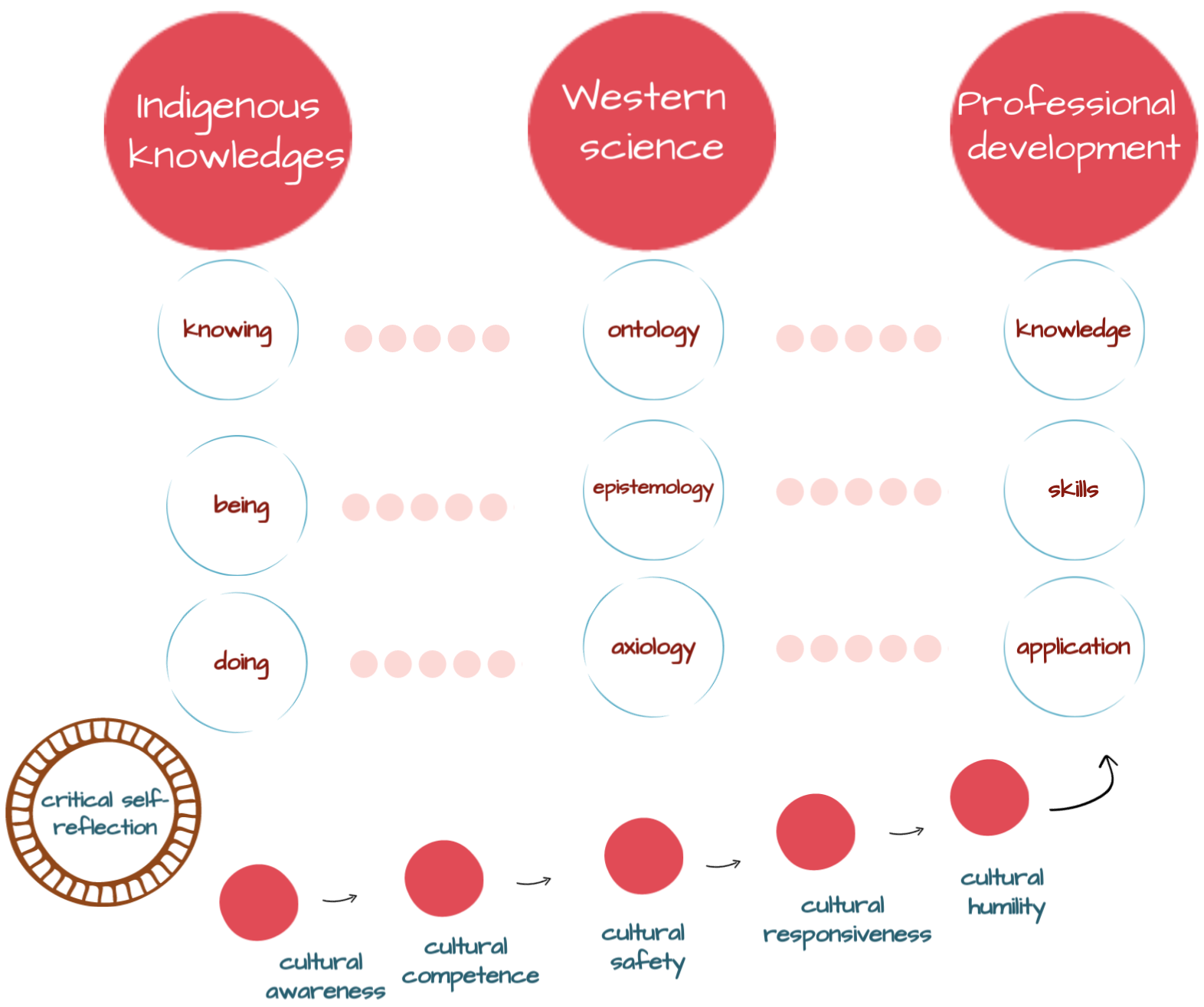
Foundational to evaluation, and to the concepts above, is critical self-reflection. This is an essential practice to understand “what influences my knowledge and skills and their application?”
Critical reflection is often on our background influences, values, experiences and attitudes. Reflexivity builds on critical self-reflection, encouraging us to reflect, learn and improve how we do things to suit local contexts and the passing of time. Seeing connections builds curiosity and trust. Maybe humans’ relationship to the universe has… universal things? If we can find them, perhaps this can alleviate some fear of being separate to ‘others’, to feel safer to know and share our standpoints, and to share power.
Recommended citation
Williams, M., Manton, D., Fitzpatrick, S., & Ragg, M. (2023). Alignment of Indigenous knowledges, evaluation methodology and workforce development. Yulang Indigenous Evaluation. https://yulang.com.au/indigenous-evaluation-resources/
